Bachelor of
Education (Secondary)
Entry requirements
Key information
VIEWING DOMESTIC
VIEWING INTERNATIONAL
Entry requirements
Key information
overall
overall
Note: Part-time equivalent study options are not available for international students.
Shape Futures: Study Secondary Education.
The Bachelor of Education (Secondary) at Flinders University is an industry leader, creating graduates who are ready to educate and shape the next generation.
The course immerses students in innovative learning experiences designed to equip graduates with the knowledge and skills for 21st Century schooling.
Scholarship Opportunity
35 Enabling Educator Excellence (E3) Scholarships, valued at $5000, will be available for students commencing in 2026.
No.1 in SA
in Education & Training for learning resources, overall educational experience and teaching quality.
The Good Universities Guide 2025 (undergraduate), public SA-founded universities only
5 Stars
in Education & Training for learner engagement
The Good Universities Guide 2025 (undergraduate)
No.1 in SA
in Education & Training for full-time employment, learning resources, overall educational experience, student support and teaching quality.
The Good Universities Guide 2025 (postgraduate), public SA-founded universities only
Step into a rewarding career in secondary teaching.
Secondary education offers a range of career opportunities, with strong demand for qualified teachers.
A Bachelor of Education (Secondary) from Flinders University provides the foundation needed to begin a career in teaching, with a focus on practical experience and subject knowledge relevant to working in today’s secondary school settings.
Salary
$95K - $126K
typical salary in Australia
Job opportunities
1,199
in Australia, 2024

Secondary School Teacher
Secondary school teachers educate young people in the middle and senior years of schooling, supporting their academic and personal development as they prepare for life beyond school. In Australia, they typically teach students from Year 7 to Year 12, specialising in one or more subjects such as English, Mathematics, Science, or History.
They plan and deliver engaging lessons, assess student progress, and create supportive learning environments. Alongside their teaching role, they help students build independence, critical thinking skills and confidence. It’s a fulfilling career for those passionate about their subject area and making a positive impact in young people’s lives.

Learning Consultant
Learning consultants provide expert advice to schools and educational institutions on curriculum development, teaching methods, and educational policies.
As a learning consultant, your work could include:
- Supporting schools to implement new curriculum frameworks
- Advising on inclusive teaching practices and how to support diverse learners
- Developing teaching training programs or educational resources
- Contributing to policy development at a system or school level.
Salary
$95K
typical salary in Australia
Job opportunities
5,017
in Australia, 2024
Sources: Jobs and Skills Australia, 2024 | Seek Australia, 2024 | SA Department for Education pay rates
Educational Program Developer
A program developer designs, plans and implements educational programs for various government and private organisations. These programs provide educational experiences for school-age students.
Curriculum Developer
Curriculum developers design and implement educational programs and materials that meet the needs of students and align with educational standards.

Literacy or Numeracy Specialist
Literacy and numeracy specialist teachers support students with foundational reading, writing, or maths skills through targeted interventions or small-group programs. They also help build teacher capacity by modelling strategies, offering professional development, and supporting the integration of these skills across subjects.
What will you study to start your career as a Secondary Teacher?
Study a variety of core topics and electives and get hands-on experience with professional placements.
- Year 1
- Year 2
- Year 3
- Year 4
GENERAL
Your degree combines core topics, hands-on experience with professional placements and up to 2 majors in an approved area of your choice.
Year 1 - Core topics
Your first year might include the following topics. For exact topic information, visit the course Handbook.
- Inclusive Education
- Pedagogy and Practice
- Communities of Practice
- Literacy Across the Curriculum
- 9 units from an approved major
- 9 units from a second approved major
*A placement (period of professional experience) where you'll work in real classrooms (or other educational settings) as part of your teacher training.
GENERAL
In your second year, you'll study core topics and your choice of two option topics. You'll also get hands-on experience with placement opportunities and build industry connections.
Year 2 - Core topics
Your second year might include the following topics. For exact topic information, visit the course Handbook.
- Psychology for Children and Adolescents
- Professional Experience*
- 13.5 units from an approved major
- 13.5 units from a second approved major
*A placement (period of professional experience) where you'll work in real classrooms (or other educational settings) as part of your teacher training.
GENERAL
In your third year, you'll study core topics and your choice of two option topics. You'll also get hands-on experience with placement opportunities and undertake an industry project.
Year 3 - Core topics
Your third year might include the following topics. For exact topic information, visit the course Handbook.
*A placement (period of professional experience) where you'll work in real classrooms (or other educational settings) as part of your teacher training.
GENERAL
Your final year includes a capstone project and extended placements to support professional readiness.
Year 4 - Core topics
Your fourth year might include the following topics. For exact topic information, visit the course Handbook.
*A placement (period of professional experience) where you'll work in real classrooms (or other educational settings) as part of your teacher training.
Accreditation or Professional Recognition
On successful completion you will be eligible to apply for registration with the Teachers Registration Board of South Australia. Graduates looking for employment in other parts of Australia and overseas may be required to meet additional conditions.
Customise your degree.
Strengthen your teaching future with two majors. By choosing your two majors, you will be able to build subject expertise, meet accreditation standards and boost career opportunities.
The full list of majors offered at Flinders is available by navigating to Program of Study in the course handbook.
Boost your knowledge with an Honours in Education.
Deepen your expertise and research skills with an Honours year in Education. Specialise in areas such as early childhood, gifted education, special education, leadership, wellbeing, and more. You'll complete an independent research project under expert supervision, preparing you for leadership roles, research careers or postgraduate study.
Majors include: Higher Education, Wellbeing and Positive Mental Health, Leadership and Management, Educational Research, Evaluation and Assessment, Cognitive Psychology and Educational Practice.
No.1 in SA
in Education & Training for learning resources, overall educational experience and teaching quality.
The Good Universities Guide 2025 (undergraduate), public SA-founded universities only
5 Stars
in Education & Training for learner engagement
The Good Universities Guide 2025 (undergraduate)
No.1 in SA
in Education & Training for full-time employment, learning resources, overall educational experience, student support and teaching quality.
The Good Universities Guide 2025 (postgraduate), public SA-founded universities only
Discover South Australia.
Where world-class education meets laid-back coastal living. With pristine beaches, acclaimed wineries, and vibrant festivals at your doorstep, South Australia offers an unmatched student experience.
Photo credit: SATC
Get inspired.
Discover more about Flinders University’s Education degrees.
Become a teacher
Learn what alumna Tayah Zalewski loved about this course.
Why we love teaching
Hear why our academics and graduates love teaching.
“Flinders was the right choice because they have enthusiastic staff, good facilities, and amazing teaching quality.”
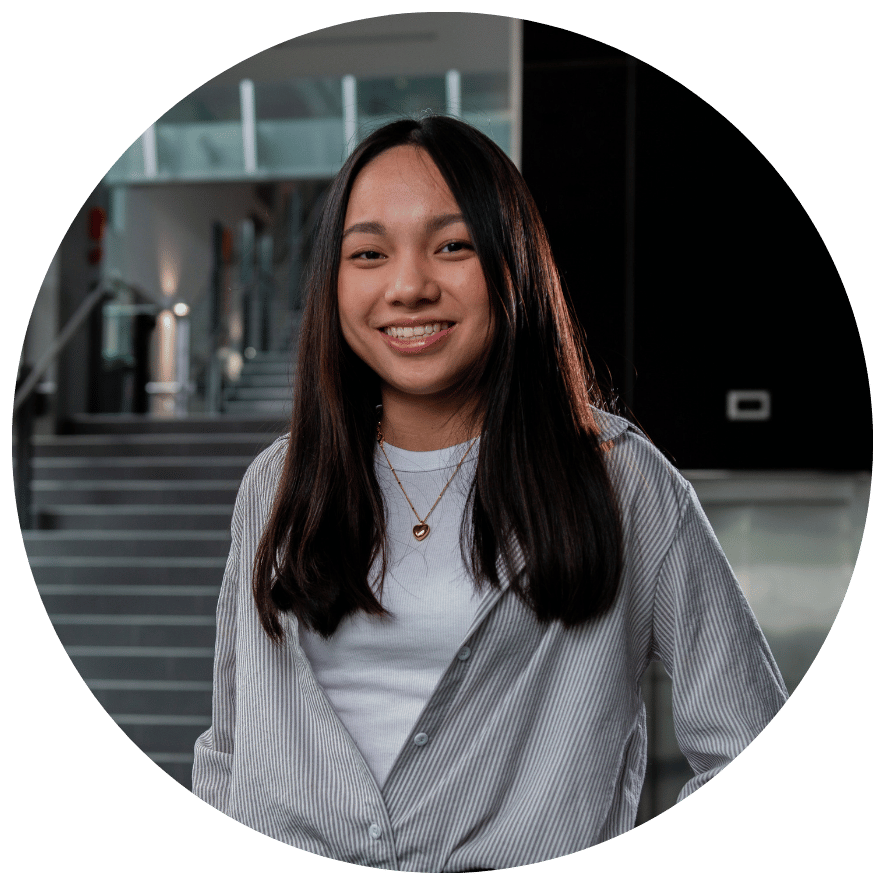
My Linh Nguyen
Bachelor of Education (Secondary)
“The quality of teaching, fantastic learning resources, and modern facilities is what set Flinders apart from the other institutions.”
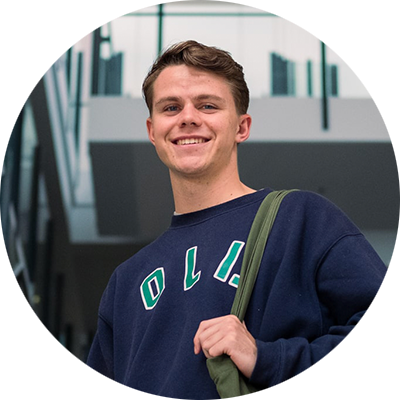
Harrison Paay
Bachelor of Education (Secondary)
Need support?
International Student Services (ISS) is the first point of contact for international student support. The university also offers everything from cultural, health, and wellbeing services, to academic support.
Campus tours
Take a virtual tour of our campuses, guided by your fellow international students.
FUSA
Flinders University Student Association (FUSA) is the heart of the Flinders Experience. FUSA is where you'll find out about events, club memberships, and extracurricular activities.
Accommodation.
Adelaide has many accommodation options for international students. You can choose to live on campus, at our city accommodation provider The Switch, or in rental accommodation.
Flinders offers a vibrant, fun, supportive uni experience you’ll remember for a lifetime.
Need support?
From cultural, health and wellbeing services, to study and financial support, enrolment advice and more, we’re here to help.
Student clubs
Flinders University Student Association (FUSA) is the heart of the Flinders Experience. FUSA is where you’ll find out about events, club memberships and extracurricular activities.
Campus facilities
Flinders’ campuses are hubs of activity, with retail and food outlets, library spaces, study and chill spaces and more.
Learn from the experts.
Our incredible teaching and professional staff are experts in their fields and well-connected to the industry.
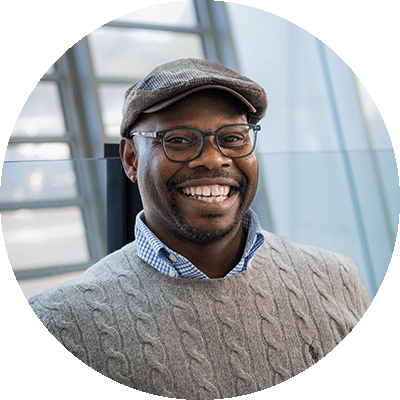
Course coordinator
Chido Alozie
Dr. Chidozie Alozie is a Senior Lecturer in Education and Course Coordinator of Flinders' Bachelor of Education (Secondary). He teaches core topics that explore the role of education in society, learning design, and curriculum development, with a strong focus on connecting theory to real-world practice.
Passionate about student success, Dr. Alozie also supports future educators through mentoring and academic guidance, helping them thrive throughout their studies and into their teaching careers.
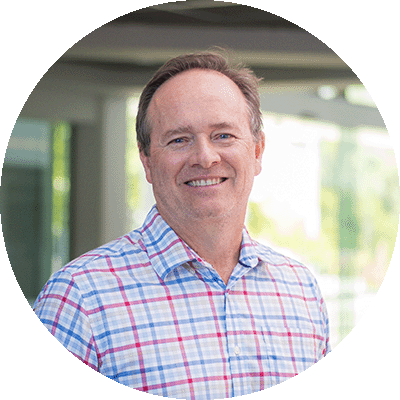
Course coordinator
Carl Salt
Carl Salt is a Lecturer in Active Communities and Social Impact and Course Coordinator of Flinders' Bachelor of Education (Secondary). With over 20 years of experience in education leadership, including roles in both schools and higher education, Carl brings deep insight into teaching and learning.
At Flinders, he’s committed to helping future educators develop critical thinking and connect with real-world teaching environments. His passion for education and student success is at the heart of the Secondary Education program.
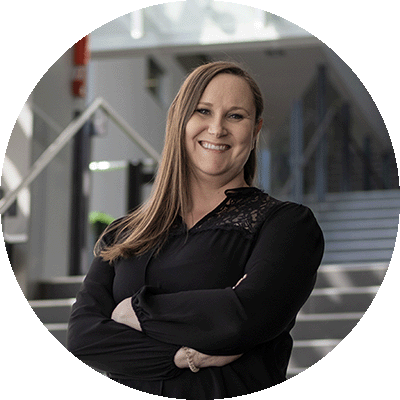
Lecturer
Shaileigh Rowtcliff
Dr. Shaileigh Rowtcliff is a teaching specialist and lecturer in Primary Education at Flinders University. With over 16 years of experience in education, she has worked as a primary teacher, ICT coordinator, and principal of a K-12 school in the USA. Her research focuses on attitudes, beliefs, and emotions in primary mathematics education, as well as STEM learning and digital technologies in teaching. Passionate about innovative and situated learning approaches, Shaileigh is dedicated to supporting pre-service teachers in developing positive learning experiences and creative teaching practices in mathematics and STEM education.
Gain real world experience.
Connect with industry through practical experience placements. Flinders has strong partnerships with school sport and health settings. With over 80 days of school placements and a focus on real-world teaching strategies, you’ll graduate ready to work in diverse settings—urban, regional, public, or independent - preparing you for a rewarding and future-focused teaching career.
The degree provides you with practical experience that prepares you for the workforce.
- Undertake extensive professional experience placements (minimum 80 days) in a variety of primary school settings.
- Develop vital practical skills such as relationship building, educational planning, technology use and community innovation.
- Learn to engage in transformational, innovative and creative teaching practices.
- Develop considered, relational skills for working with children, their families, community members and professional colleagues.
A Working with Children Check, and Responding to Risks of Harm, Abuse and Neglect – Education and Care Certificate must be completed before undertaking a placement in your first semester.
Financial Support while you're on placement?
You could be eligible for the Commonwealth Prac Placement - up to $331.65 per week.*
Begins July 2025 | Teaching, Social Work, Nursing and Midwifery
*Terms and conditions and eligibility criteria apply
Let’s get started on your Flinders’ experience.
We know not everyone begins uni the same way, so we offer a variety of pathways into Flinders.
Use the dropdown to tell us a bit about you.
Alternative pathways
UniTEST
If you’re in Year 12, taking the free uniTEST can help boost your chances of getting into Flinders.
Research Project B Pathway
Strong results in your Research Project B subject along with your Year 12 results can be considered for entry.
Year 12 Grades Entry
By using three of your best Year 12 grades, you can also gain a place in your course of choice.
School Recommendation Program
Your school’s recommendation about your academic performance may be considered as part of your admission.
If you started uni but didn't finish, you may be able to gain entry into Flinders with a higher education transfer.
Higher education transfer
If you’re studying at another university, you may be able to transfer to Flinders based on your Yr 12 results, current GPA or other factors.
If you've had TAFE or VET training, you may be able to continue your study with Flinders.
TAFElink
Even if you didn’t finish high school (Year 12), you may be able to study at Flinders through your TAFE/VET qualification.
Dual offer pathways
You may be able to complete a TAFE SA course and have guaranteed entry into Flinders.
Credit transfer
The TAFE/VET stud you’ve already done may be able to be used as credit towards a Flinders’ course.
No ATAR? No worries. If you've got work or life experience, there are pathways into Flinders.
Flinders Foundation Studies
The Foundation Studies Program is free and guarantees entry to a range of degrees.
Skills for Tertiary Admissions Test (STAT)
The STAT is a 2-hour multiple choice test that assesses your abilities.
Year 12 qualifications
If you completed Year 12 more than two years ago you can still use your results to apply.
Apply via SATAC
Concerned about your ATAR? If it doesn't meet the course requirement, or if you don't receive one, we offer alternative pathways to admission. Contact us to discuss your options—we're here to help.
Applicants must complete a non-academic assessment task known as a Teaching Capabilities Statement as part of their application to demonstrate their motivation to teach, their strong interpersonal and communication skills, willingness to learn, resilience, self-efficacy, and strong organisational and planning skills. This involves a short statement in response to three set questions used to demonstrate suitability for study and work in the teaching profession.
Applicants who select this course as a preference during the application process will be directed to a page to meet this requirement.
- Entry requirements
- Application options
Applicants must complete a non-academic assessment task known as a Teaching Capabilities Statement as part of their application to demonstrate their motivation to teach, their strong interpersonal and communication skills, willingness to learn, resilience, self-efficacy, and strong organisational and planning skills. This involves a short statement in response to three set questions used to demonstrate suitability for study and work in the teaching profession.
Applicants who select this course as a preference during the application process will be directed to a page to meet this requirement.
Visit the Teaching Capabilities Statement page for further information.
The Australian Government has introduced the Literacy and Numeracy Test for all initial teacher education (ITE) students to ensure they have the high level of personal literacy and numeracy skills required of teachers.
The test is a national instrument designed to assess elements of an individual's literacy and numeracy skills and will be used to demonstrate that ITE graduates are in the top 30 per cent of the population for literacy and numeracy.
All students graduating from any ITE course in South Australia must have achieved the standard for both the literacy and numeracy components of the Literacy and Numeracy Test for Initial Teacher Education (LANTITE) to graduate.
For further information, including registration details, please check the ACER Teacher Education website.
There are also important inherent requirements for this course and applicants are strongly advised to become aware of these requirements.
If you don’t meet our English language entry requirements and need to improve your English language proficiency, you can do so through Flinders University Academy – or our approved English Language Instruction Course for Overseas Students (ELICOS) providers.
This means that you can attend the required English language tuition at approved ELICOS providers and gain direct entry into university without an IELTS or TOEFL test.
If you don’t meet our academic entry requirements, you can still gain entry to Flinders University through Flinders University Academy. With a range of diplomas, foundation and English language courses, students can find a direct pathway into the destination degree of their choice.
How to apply
Select your course.
Check entry requirements.
Check your eligibility for credit.
Obtain certified documents.
Submit your application and documents.
Application options.
Apply online
Follow up our step-by-step guide to help you with your application to study at Flinders.
Find an agent
Our registered education agents around the world understand the university system and will guide you through the application process.
Contact us
Get in touch with our team to discuss your preferences, career options, pathways, and course and entry requirements. We are here to ensure you have everything you need to choose the right degree for you.
Don't meet academic requirements? Don't worry. We'll help you get there.
Preparatory courses
If you lack required English proficiency, improve through Flinders University Academy or approved ELICOS providers for direct university entry without IELTS/TOEFL tests.
Flinders University Academy
If you do not meet entry requirements for your desired degree, Flinders University Academy will provide you with a direct pathway into the destination degree of your choice.
Frequently asked questions.
Over the years, many questions have been asked by students before. For the quickest answers view our frequently asked questions or browse the full list @ Ask Flinders.
The world will always need teachers and educators, and projections of teacher employment reflect this. According to Jobs and Skills Australia, the following teaching jobs are set to increase from May 2024 - 2034:
Early childhood teachers by 8.6%
Primary school teachers by 8.5%
Middle school teachers by 8.7%
Secondary school teachers by 8.4%
Special education teachers by 10.6%
(Jobs and Skills Australia, 2024 Employment projections to 2034).
Yes – professional placements are a key part of your degree. You’ll complete compulsory teaching placements in real school settings, giving you the hands-on experience you need to become classroom-ready.
These placements are full-time while you're on them, so you’ll get a real sense of what teaching life is like.
You may also have the chance to go beyond the minimum number of placement days required for teacher registration, giving you even more experience before you graduate.
There are opportunities to take your placement in rural or remote areas too – with potential funding available to support you.
And from July 2025, eligible students in education may be able to receive payment for some placements through the Commonwealth Prac Payment.
According to SEEK, in Adelaide, the average annual salary for a secondary school teacher typically falls within the range of $95,000 to $126,000.
It is possible to change your specialisation, however, in some cases this may extend your study.
To become a high school teacher in South Australia, you need to:
- Complete an accredited teaching qualification – either a Bachelor of Education (Secondary) or an equivalent undergraduate or postgraduate qualification.
- Pass the Literacy and Numeracy Test (LANTITE).
- Register with the Teachers Registration Board of South Australia (TRB SA) – including a Working with Children Check and mandatory training.
- Apply for teaching roles in secondary schools.
Learn more at trb.sa.edu.au
In South Australia, the key differences between undergraduate degrees in early childhood education, primary education, and secondary education relate to the age group of students you'll be qualified to teach, the focus of your studies, and the teaching registration categories with the Teachers Registration Board of South Australia (TRBSA).
The Australian Government has introduced the Literacy and Numeracy Test for all initial teacher education (ITE) students to ensure they have the high level of personal literacy and numeracy skills required of teachers.
The test is a national instrument designed to assess elements of an individual's literacy and numeracy skills and will be used to demonstrate that ITE graduates are in the top 30 per cent of the population for literacy and numeracy.
All students graduating from any ITE course in South Australia must have achieved the standard for both the literacy and numeracy components of the Literacy and Numeracy Test for Initial Teacher Education (LANTITE) to graduate.
For further information, including registration details, please check the test administrator’s website at https://teacheredtest.acer.edu.au/
There are also important inherent requirements for this course and applicants are strongly advised to become aware of these requirements.
Applicants must complete a non-academic assessment task known as a Teaching Capabilities Statement as part of their application to demonstrate their motivation to teach, their strong interpersonal and communication skills, willingness to learn, resilience, self-efficacy, and strong organisational and planning skills. This involves a short statement in response to three set questions used to demonstrate suitability for study and work in the teaching profession.
Applicants who select this course as a preference during the application process will be directed to a page to meet this requirement.
Visit the Teaching Capabilities Statement page for further information.
- Applications are completed via SATAC
- Visit: satac.edu.au
The table below shows ATAR and Selection Rank data for students offered a place wholly or partly on the basis of ATAR commencing in Semester 1, 2025. It is limited to applicants that have recently completed secondary education (within the last two years). Data may reflect multiple courses available within a suite of courses.
Notes:
<5 – less than 5 ATAR based offers made
N/A – This course uses additional selection criteria and therefore Selection Rank is not published
| ATAR-based offers only across all offer rounds | ATAR - Excluding adjustment factors | Selection Rank - ATAR plus any adjustment factors |
|---|---|---|
| Highest rank to receive an offer | 97.55 | 99.95 |
| Median rank to receive an offer | 78.55 | 82.97 |
| Lowest rank to receive an offer | 60.85 | 70.15 |
The table below gives an indication of the likely peer cohort for new students in this course. It provides data on students who commenced study in this course in Semester 1, 2025 including those admitted through all offer rounds and international students studying in Australia. Applicant background groupings are based on educational background, not basis of admission. Data may reflect multiple courses available within a suite of courses.
Notes:
<5 – the number of students is less than 5
N/P – Not published: the number is hidden to prevent calculation of numbers in cells with less than 5 students
The table below gives an indication of the likely peer cohort for new students in this course. It provides data on students who commenced study in this course in Semester 1, 2025 including those admitted through all offer rounds and international students studying in Australia. Applicant background groupings are based on educational background, not basis of admission. Data may reflect multiple courses available within a suite of courses.
Notes:
<5 – the number of students is less than 5
N/P – Not published: the number is hidden to prevent calculation of numbers in cells with less than 5 students
| Applicant background (Semester 1, 2025) | Number of students | Percentage of all students |
|---|---|---|
| Higher education study (includes a bridging or enabling course) | 136 | 32% |
| Vocational education and training (VET) study | 30 | 7% |
| Work and life experience | 12 | 3% |
| Recent secondary education - Admitted solely on the basis of ATAR (regardless of whether this includes the consideration of adjustment factors such as equity or subject bonus points) | 156 | 37% |
| Recent secondary education - Admitted where both ATAR and additional criteria were considered (e.g. portfolio, audition, extra test) | 25 | 6% |
| Recent secondary education - Admitted on the basis of other criteria only and ATAR was not a factor (e.g. special consideration pathways) | 44 | 10% |
| International Students | 20 | 5% |
| All students | 423 | 100% |
Frequently asked questions.
Get in touch with us to discuss your preferences, career options, pathways and course and entry requirements. We are here to ensure you have everything you need to choose the right degree for you.
The type of documents you will need for your international application depends on what course you are applying for and which country you are a citizen of. Course requirements are stated on each course webpage. Examples of documentation you might expect to provide for your international application include a copy of personal identification, academic transcripts or a resume.
Once you have received your Confirmation of Enrolment (CoE) letter from Flinders University, you should apply for your visa as soon as possible as visa processing times can vary. You will receive your CoE letter after you have applied to study at Flinders, accepted your offer and paid the semester tuition fee.
No. Part-time study is currently not available for international students due to visa conditions.
No. Online study is currently not available for international students due to visa conditions.
If you don’t meet our English language or academic entry requirements, you can still gain entry to Flinders University through our on-campus pathway provider Flinders University Academy. Alternatively, you can improve your English language proficiency through our approved English Language Instruction Course for Overseas Students (ELICOS) providers.
You can apply to study as an international student directly through Flinders University or an authorised agent in your country.
If you are from one of the countries listed here, you are required to apply via an education agent. If you reside onshore in Australia, you will not require an agent even if you are from the countries listed above.
Yes. As a student visa (subclass 500) holder, you and your dependents (family members) can work up to 48 hours a fortnight when your course of study is in session. If you have started a master degree by research or doctoral degree, this rule does not apply to you and working hours are not restricted.
Our dedicated International Student Services (ISS) team provide a range of programs supporting your enrolment, study and social life, as well as a referral service to facilities on campus and within the local community.
![]()
Sturt Rd, Bedford Park
South Australia 5042
South Australia | Northern Territory
Global | Online
CRICOS Provider: 00114A TEQSA Provider ID: PRV12097 TEQSA category: Australian University








